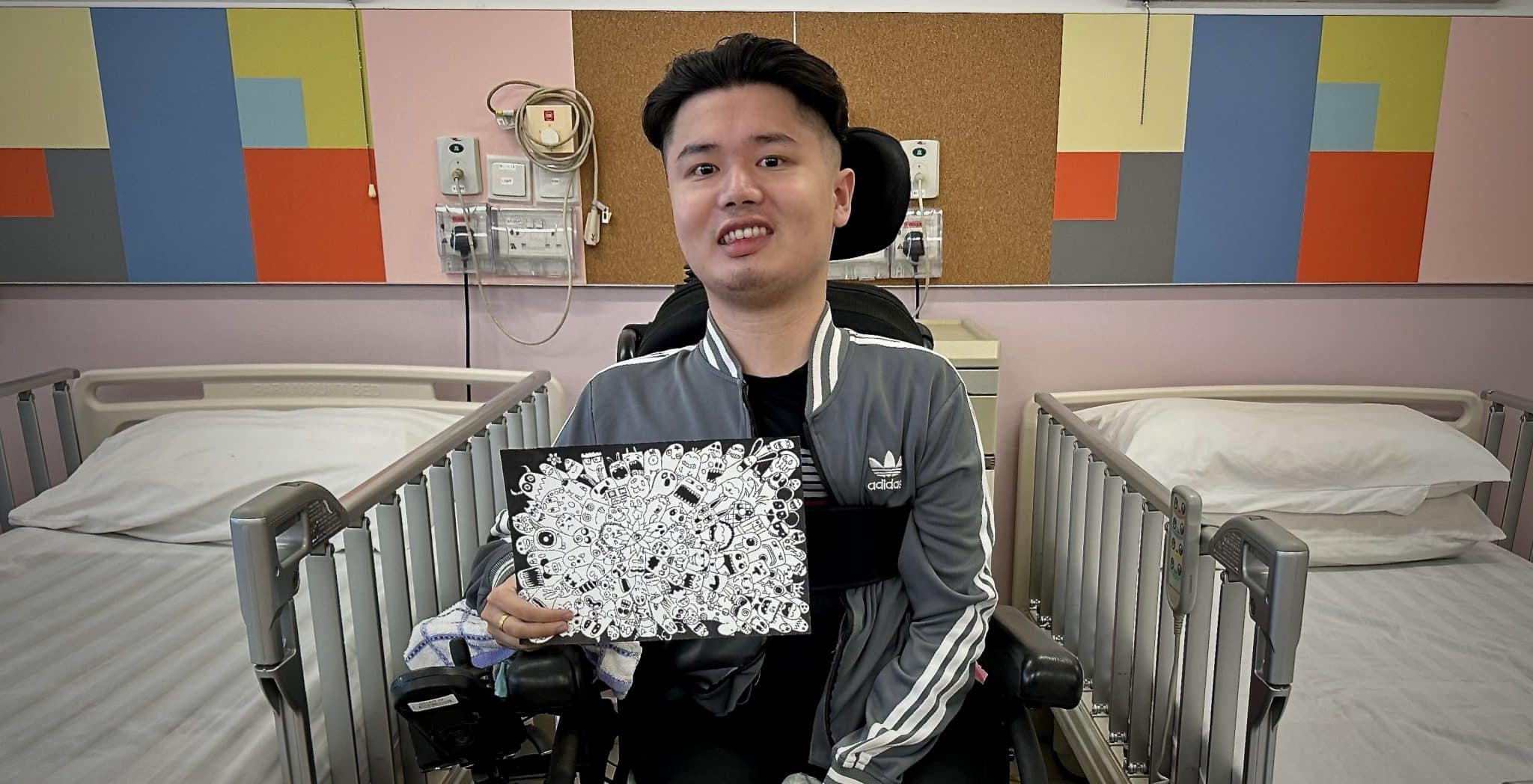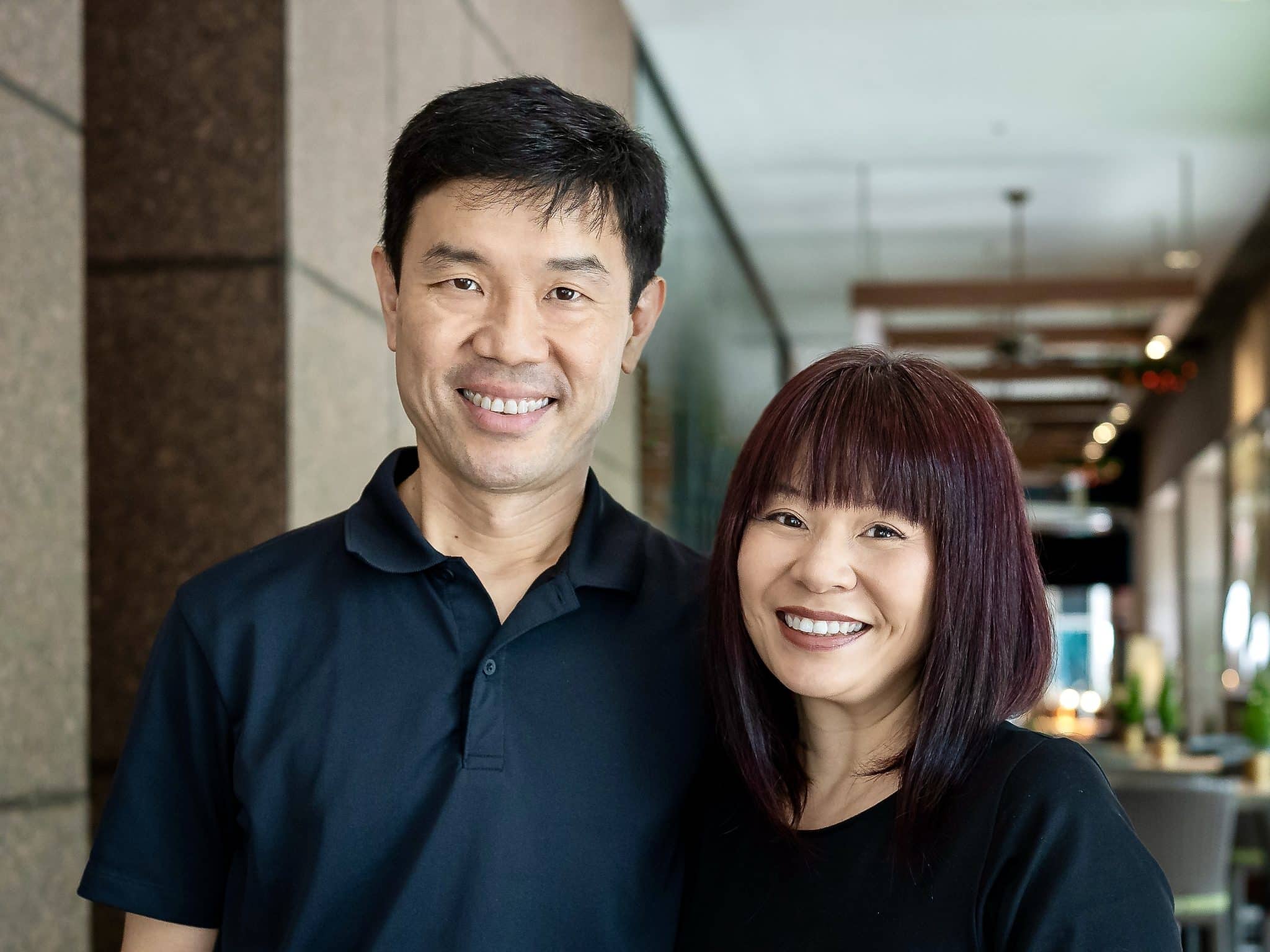“To you it’s suffering, to them it’s love”: Caregivers join Salt&Light Family Night for tips on staying strong and sane
by Christine Leow // October 5, 2021, 5:54 pm
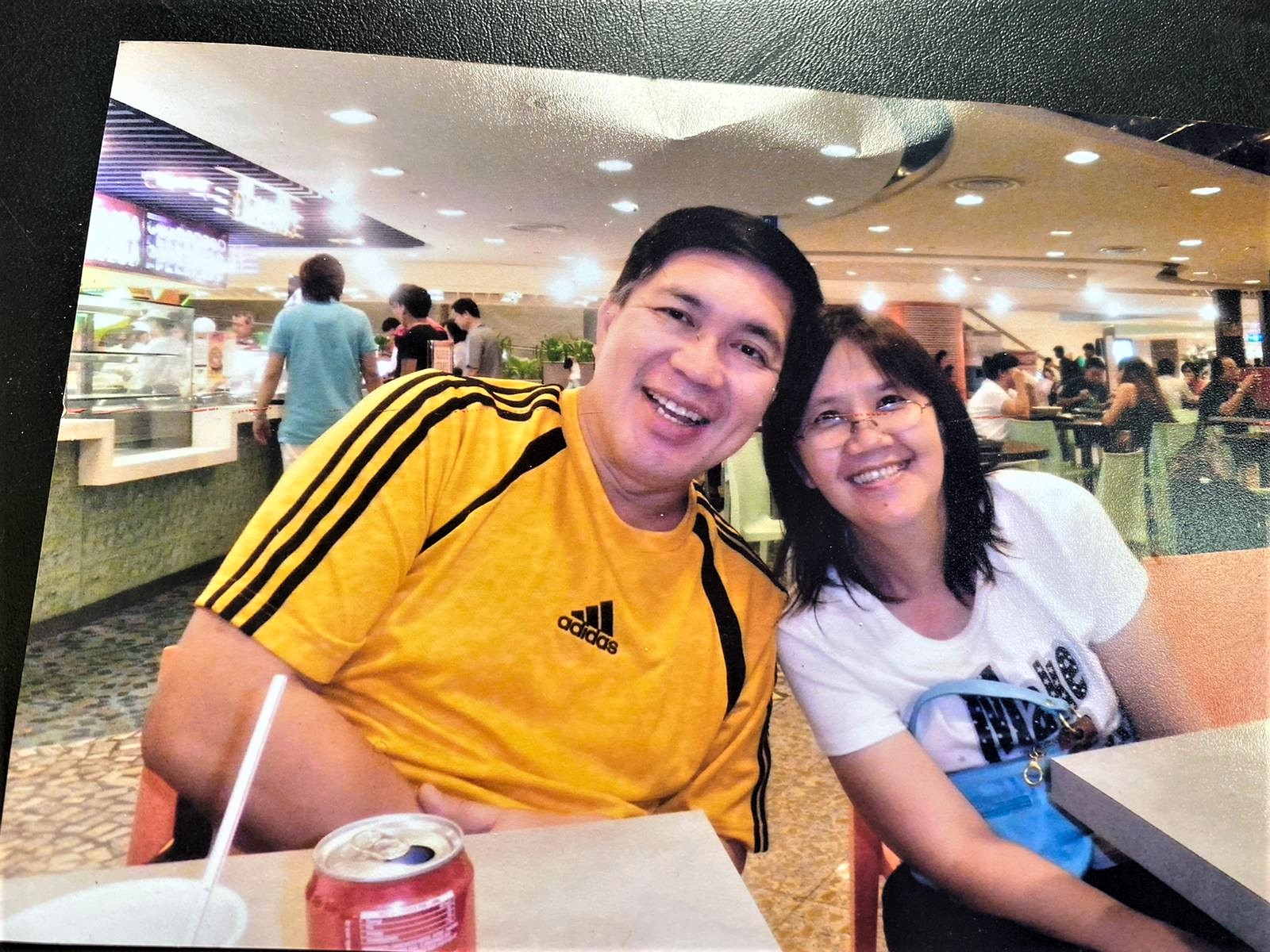
Rev Alvin Ngo and his wife Wai Leng before she was diagnosed with early-onset dementia. He has been her primary caregiver for the last 13 years. They have no domestic help. Photo courtesy of Reverend Alvin Ngo.
It seemed like a regular part of ageing at first – forgetting to turn off the stove, leaving the tap on.
But when retired pastor Reverend Alvin Ngo’s wife started asking colleagues the same questions again and again, alarms bells rang.
Her family took her to three separate specialists. After a series of tests, she was diagnosed with early-onset dementia. She was only 52.
The mechanical engineer had to quit the job she had held for 32 years much earlier than she had expected.
Thirteen years on, she has become entirely dependent on Ps Alvin for her care.
“During the Circuit Breaker, she became totally bed-ridden. So, we can’t go out as much.”
“Initially, she could follow instructions and do certain functions on her own. She even tried working part-time in some schools and childcare centres,” recounted Ps Alvin.
Soon, even that was not possible and Ps Alvin had to take her to work with him.
“This was fine as she was still mobile. I would take her for all my meetings. She would go with me for all the visitations either at home or in hospitals.
“She attended all the services whether I was preaching or not, including funerals. We even went for three overseas mission trips together.”
Five years ago, she began losing her motor skills and, with that, her mobility. Then, she became incontinent.
Three years ago, Ps Alvin stepped down from his position as pastor to devote himself fully to her care. The couple does not have a domestic helper.
“During the Circuit Breaker, she became totally bed-ridden. So, we can’t go out as much.”
Caregivers unite
His is a story not unfamiliar to the nearly 270 people who attended Salt&Light Family Night (September 28). More than half (60%) were caring for an ageing parent or a sick family member, according to a poll that night.
Not unexpectedly, the majority (45%) were middle-aged – between 46 and 60. But a number were also young caregivers – 1 in 5 was 35 or younger.
Top of their concern as caregivers was burnout. Guilt and the need for self-care as well as for patience followed closely behind.
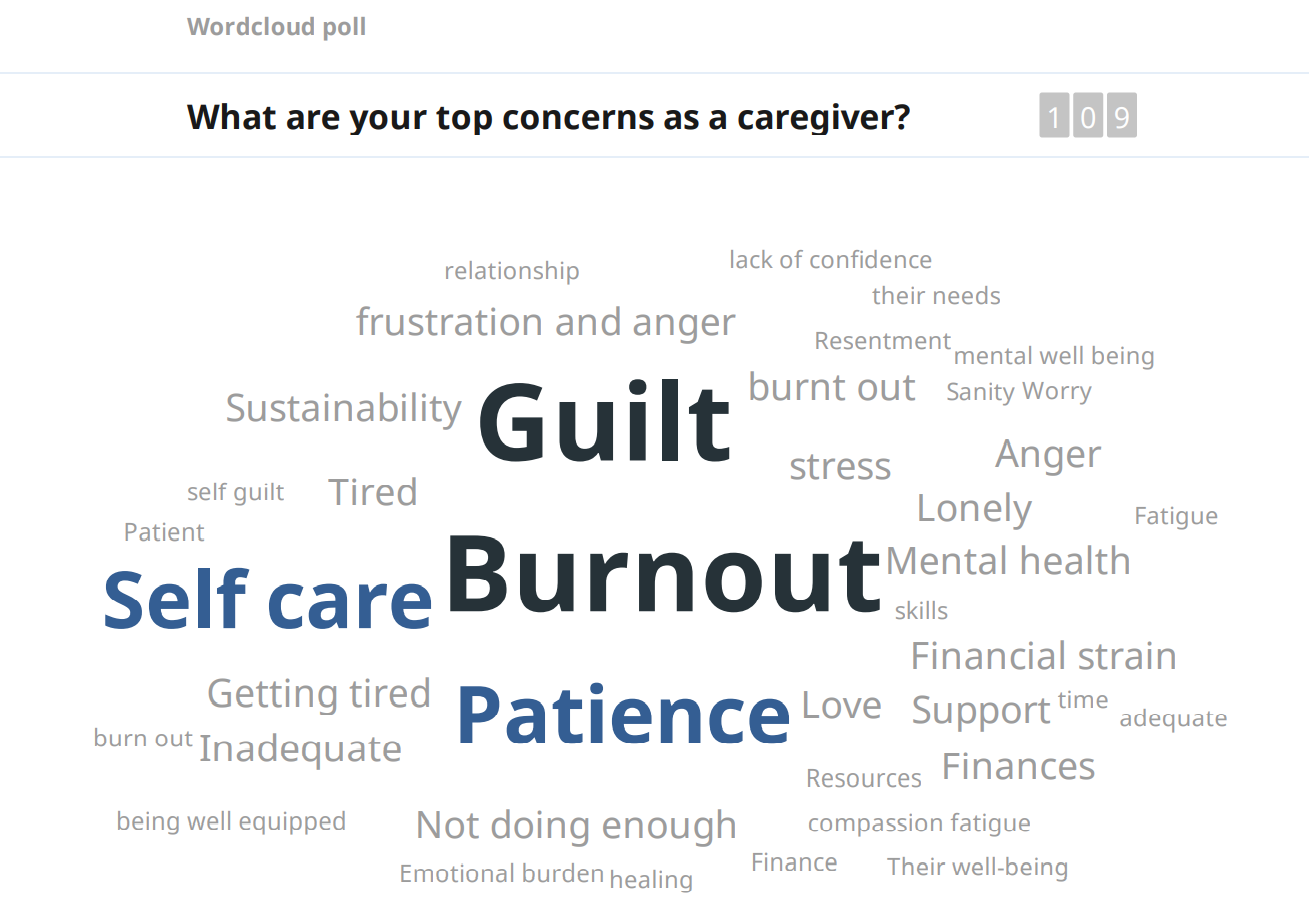
A word cloud created by participants as they shared their concerns as caregivers.
Apart from Ps Alvin, the other panellists for the night were Dr Chia Yen-Yen and Tim Lee.
Yen-Yen was the Deputy Director of Nursing at KK Women’s and Children’s Hospital for nearly two decades. For 16 years, she cared for her mother who was a stroke patient.
For the last two over years, she has been the main caregiver of her husband whose two strokes left him a total care patient. She also cares for her father who is house-bound and who lives with her, while raising two young adopted daughters under the age of nine.
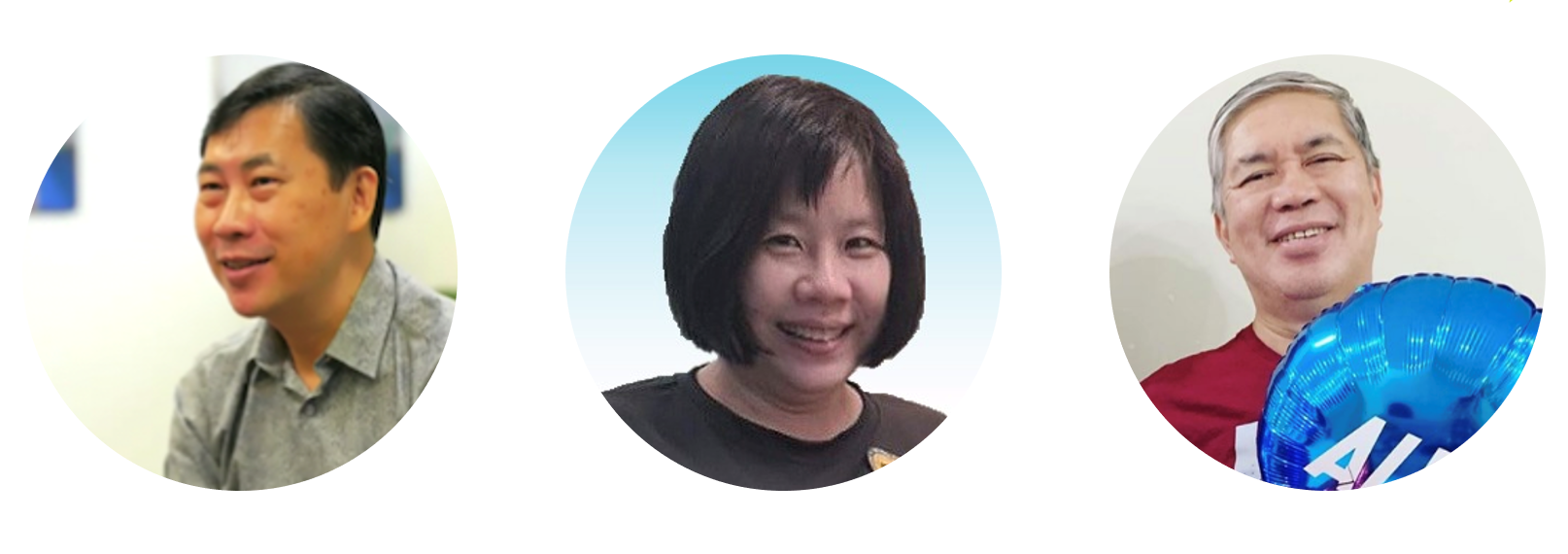
(Left to right) Tim Lee, CEO of Caregivers Alliance Limited, and caregivers Dr Chia Yen-Yen and Rev Alvin Ngo were the panellists for Salt&Light Family Night.
She quit her nursing job in 2020 and only recently started working flexi-time as a financial consultant so she could have more time for caregiving.
Tim is the CEO of Caregivers Alliance Limited (CAL). The professional non-profit organisation is dedicated to providing caregivers of persons with mental health issues with the education, support networks, crisis support, tailored services and self-care enablement they need.
Together, the panellists fielded heart-felt questions from the participants.
How do caregivers prevent burn out?
Tim highlighted a few key needs of caregivers.
The first is the need to not feel alone. The second is the need for knowledge on how to be better at caregiving. Next, is the need for self-care.
“Stress, burden and burnout – these are so common among our caregivers,” he noted.
“There is a need to take care of yourself which many caregivers don’t realise. To you, it’s a responsibility. You just charge ahead and do it and, in the process, you really, really hurt yourself. So, you must know how to self-care because you need to be sustainable.”
“If we’re not healthy, then the task that we have to do can be very difficult.”
Finally, there is the need to develop a purpose other than caregiving.
“Many of our caregivers are just so focused, they don’t have a life. They don’t have friends anymore. They fail to realise that actually all these are important.
“Their whole focus is loving their loved ones, caring for their loved ones. Actually, this is not healthy, this is not good for them.”
Tim encouraged participants to consider being part of the CAL community as a way of finding purpose and making meaning of their challenges.
“At some point, if things are more stable for you, you are able to give back. That becomes an opportunity for ministry as well.
“And it is very, very matching because you will share from your lived experiences, how in your own journey of caring for somebody, now you can offer tips, you can encourage.”
What are some self-care tips?
Once he discovered that he would have to take care of his wife, Ps Alvin started practising self-care.
“Self-care is really important for a caregiver because if we’re not healthy – mentally, physically or emotionally – then the task that we have to do and the days that we have to pass can be very difficult.”
He shared six ways caregivers can care for themselves.
1. Exercise regularly
He started by playing badminton, taking his wife with him till she could no longer climb the stairs to the court. Now, he walks around his neighbourhood.
2. Take time to read
“Read for your own growth as well as to keep informed of the illness or the situation that you are in.
“Adequate information will allay most of the fears and the uncertainty that we face.”
Ps Alvin made it his mission to find out all he could about his wife’s illness, prognosis and treatment. He scoured the Internet for information to prepare for what would come as her condition worsened as well as for resources for help.
3. Get adequate rest
Because his wife needs constant supervision, Ps Alvin has learnt to follow his wife’s rhythms. He sleeps when she does so that he can be awake when she is awake.
4. Keep a journal
Ps Alvin has two journals – one for blessings and the other for reflections.
“I feel that this is something that is fundamental to your own sanity. There are some emotional, and maybe spiritual, struggles in the course of being a caregiver.
“Some of these things you can talk to God; some of these things you cannot talk to other people.
“Journalling is something that is fundamental to your own sanity. “
“So, one avenue of expressing yourself and talking about your frustrations is to write them down somewhere and reflect on it. That has been a great help for me over all these years.”
Yen-Yen agreed that journalling is a “most therapeutic exercise that I feel I would recommend every caregiver to do”. Those who do not like to write can voice record their thoughts, she added.
Out of her journaling, Yen-Yen has published a book, So You Would Come.
“It is a gratefulness journey of all the blessings God has given to me to prepare me for my caregiving journey. It testifies that nothing happens by coincidence, nothing happens by chance.”
5. Occupy yourself with something meaningful
Though retired, Ps Alvin still continues to preach in churches every two weeks. This is something he enjoys and had done for over 35 years as a pastor.
“This is meaningful for me. Find something meaningful for yourself.”
6. Ask for help
“At the beginning of the illness or the condition, because it is new and fresh, a lot of people will come in to help you.
“At the end of the day, when the (condition) is prolonged and it is not going to be a short journey, it is going to be a long journey, you will find that you might not have as many people with you or near you or even willing to do what they wanted to do in the beginning.”
“Give them a chance to help you. It also does wonders for your friend.”
That is when the sense of being alone in the journey sets in.
“You will probably feel a sense of abandonment or neglect, or feel side-lined, because you cannot live your normal life. You are living your life looking after somebody else.”
So, Ps Alvin asks his children or siblings to stand in for him for a few hours when he really needs to take a break and “get away from the situation I am in”.
Yen-Yen added that, on days when things get tough and being upbeat is difficult, she would call a friend.
“Give them a chance to help you. It also does wonders for your friend who does want to help but does not know how to help.”
How can caregivers take care of their mental well-being?
1. Be reasonable in your expectations
While asking for help is necessary, managing your own expectations is just as important.
Said Ps Alvin: “Don’t overly expect or assume that your family and your friends will continue to be there.”
2. Be emotionally intelligent
There will be bouts of sadness, depression and uncertainty, said Ps Alvin. Do not deny it.
The chore of daily care with no reprieve can be a real struggle. “Find ways to deal (with your feelings) in order to maintain sanity.”
Ps Alvin journals. Yen-yen cries.
“I cry a lot, usually in the middle of the night and even in church,” she revealed.
“God gave us tears for a reason. Just cry when you feel like crying. It really, really helps.
“Don’t keep it inside your heart and bottle it up. I think the worst thing you can do is to bottle it up.”
3. Seek counselling
Said Yen-Yen: “I’m not ashamed to tell you that I sought counselling.
“The professionals are really good. They know what they are doing.
“Going to someone who doesn’t know you helps also. You can pour out everything to that person and you know that the person is professional and nothing will come out from his or her mouth.”
4. Be firm about decisions
As the main caregiver of her parents, Yen-Yen has had to be firm in pushing through decisions for them amidst a chorus of well-meaning advice.
“All of the decision have consequences and I live with the consequences,” said Yen-Yen.
“I get double veto for anything for my mum or my dad. That is how I keep things in control.”
What is the Biblical perspective on caregiving?
About a year after Yen-Yen’s husband suffered his first stroke, the verse James 1:27 jumped up at her. Though she had read the book many times before, that verse had not made an impression on her till then.
In the verse, James talked about caring for those who cannot care for themselves – orphans and widows – as an act of worship.
“We can never out-give God. He gave His only begotten Son.”
“It just became so real to me that God was speaking to me,” she said.
“It brought a lot of comfort to me and made a lot of sense to me about why I was in this situation.”
Since then, Yen-Yen sees the sacrifices in caregiving as her way of imitating Christ.
“The idea of sacrifice as worship comes from God Himself. God made an appeal to us in Romans 12:1. It resonates the most with me,” said Yen-Yen of the verse that speaks of offering our bodies as a sacrifice as a true way to worship God.
Caregiving is her way of being “a conduit of God’s mercy to others who need to experience His love in a tangible way”.
Even though she admits that the caregiver-care recipient relationship is “one-sided, one giving more than the other can reciprocate”, Yen-Yen finds comfort in the example God has set.
“We can never out-give God. He gave His only begotten Son. That’s why I continue to live my life as a caregiver, hoping that God receives my worship as a pleasing sacrifice unto Him.”
“Let’s deal with today first, don’t worry about tomorrow.”
Added Yen-Yen: “Although as a caregiver, it is quite tiring and challenging, every time I think that I am serving God and I am worshiping God, I feel energised.”
Ps Alvin shared that caring for his wife has moulded his character.
His own older sister has testified that she has noticed that her once quick-tempered brother who was intolerant of “things not working out the way he wants” has become “a very patient person”.
“It is a journey for me also to grow as a person. I am learning to be more and more relaxed. Let’s deal with today first, don’t worry about tomorrow.”
What if there is guilt?
“There is only so much room for regret,” said Ps Alvin who wishes he had noticed his wife’s symptoms earlier.
“What is important is what you are doing now. Do the best in whatever needs to be done right now. We can’t turn back the clock.”
Yen-Yen, too, lived with guilt “very, very long, thinking that I may have caused my mum’s death”.
She had been cleaning her mother’s mouth when she removed a “piece of crusted thing”. She later suspected that her mother may have inhaled the crust because three days later, her mother developed a very high fever and had to be hospitalised.
“I received forgiveness from God and I think my mum forgives me.”
In the hospital, she was diagnosed with severe pneumonia. After another hospital stay, she passed away.
“I literally witnessed very rapid breathing, to abnormal breathing, until her last breath. I was the one who saw her last breath.”
Yen-Yen bore the guilt for a long time, telling no one except God.
“I know that God has forgiven me. But I hadn’t forgiven myself. I think we are the last people to forgive ourselves.”
So she went to see a counsellor and wept a lot.
“I just said to myself, ‘Don’t bear the burden anymore, let go. Anyway, you will see mum in heaven.’
“Even as I talk about it, it does bring back intense emotions that I have. But the good thing is that I received forgiveness from God and I think my mum forgives me. So, I should forgive myself.”
How can caregivers deal with the frustration?
Yen-Yen shared that sometimes, her daughters bore the brunt of her frustration. “When I start scolding, I go on and on and I cannot stop.”
But she also makes sure that, at the end of the day, she apologies for “losing my cool” and explains herself.
“Then, we will pray together.”
“God is the hero; we are the humans,” added Yen-Yen. “We all, being humans, have our limitations.
“When you act in love towards them they know it is love.”
“Every time you feel that you have let your family members down or even let yourself down, just tell yourself, ‘Tomorrow is a brand-new day.’
“Thank God for the new day; then put the past behind and press on.”
When Ps Alvin loses his temper caring for his wife, he has a “debriefing period” in which he takes a step back to reflect and think through why he had lost his cool, accepts the reality that “they don’t know what they are doing that’s why we need to care for them” and moves on from there.
Said Tim to all the caregivers present: “To you, caregiving is a responsibility. It is something you have to do. It has become very painful and hard-going, long-drawn and you are suffering.
“Have you ever realised that for the person that you are caring for, it is love. Don’t think too little about this.
“When you act in love towards them, they know it is love and that makes the difference.”
Editor’s note: This report is Part 1 of the Salt&Light Family Night episode on caring for caregivers. Look out for Part 2 within the next week.
A full recording of this episode will be available within the week. You can watch past episodes of Salt&Light Family Night on our YouTube channel here.
RELATED STORIES:
Where to get Dr Chia Yen-Yen's book
Indonesian and Chinese copies of So You Would Come are available to Salt&Light readers for free. The book chronicles her journey with God following her husband’s first stroke.
Write to [email protected] for your copy.
We are an independent, non-profit organisation that relies on the generosity of our readers, such as yourself, to continue serving the kingdom. Every dollar donated goes directly back into our editorial coverage.
Would you consider partnering with us in our kingdom work by supporting us financially, either as a one-off donation, or a recurring pledge?
Support Salt&Light
